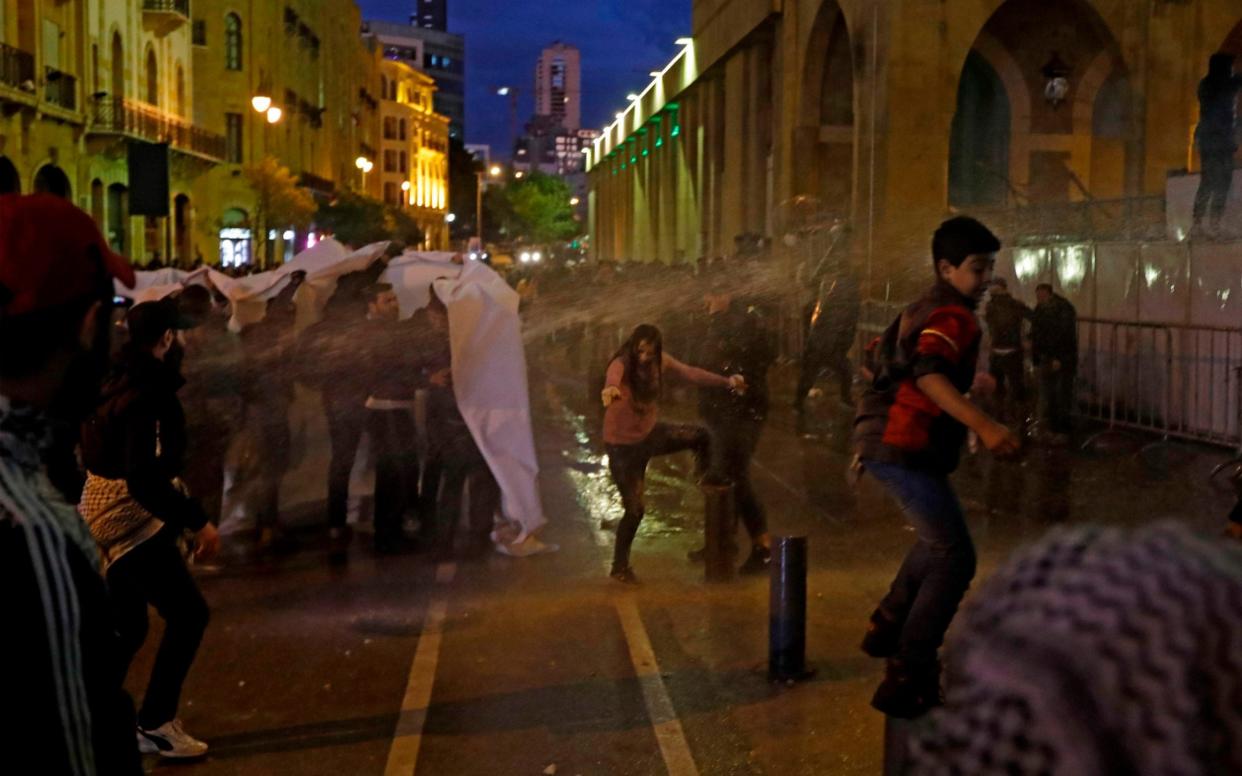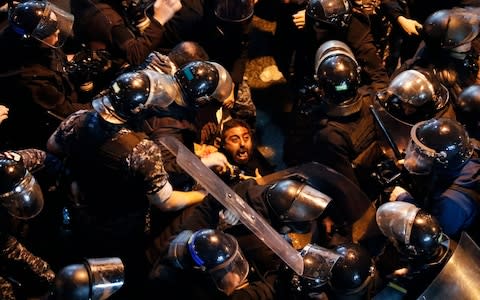US withholds support for new Lebanese government dominated by Hizbollah and its Christian allies

The US has said it is not sure if it can work with Lebanon’s new government, formed in response to growing protests over corruption, because it is dominated by Hizbollah and its allies.
Lebanon's new government is made up of appointees nominated by the powerful Shia group Hizbollah and its prime minister, Hassan Diab, a relatively unknown university professor backed by Hizbollah.
Mike Pompeo, US Secretary of State, when asked by Bloomberg News whether he supported the government, said: “I don’t know the answer to that yet. We’re prepared to engage, provide support, but only to a government that’s committed to reform.”
Mr Pompeo and anti-Iran Trump administration officials have pressed the Lebanese government for years to sideline Hizbollah’s political leaders. The US has designated Hizbollah a terrorist entity and recently introduced sanctions on businessmen and officials linked to the group.

The influence of Hizbollah in the newly formed cabinet could hurt Lebanon’s ability to win foreign funds needed to meet debt obligations and stabilize its financial system.
Mr Diab, holding the government's first session, warned on Wednesday evening: “We are facing the most difficult and dangerous stage in the history of Lebanon. We are facing a disaster.”
Protesters have been out on the streets demanding a technocratic government, in the hope of curbing corruption and staving off economic collapse.
Although the government announced Tuesday is technically made up of specialists, the ministers were named by political parties in a process involving horse trading and bickering with little regard for the demands of protesters for a transparent process and independent candidates.
On Wednesday night the denounced the line-up as a rubber stamp Cabinet for the same political parties they blame for widespread corruption.
The capital Beirut saw some of the most violent confrontations yet with security forces, which fired tear gas and rubber bullets.

Mr Pompeo urged the new government to heed the demands of protesters for a non-sectarian leadership that can make the necessary reforms.
“The protests taking place today in Lebanon are saying to Hizbollah ‘No Mas.’ No more,” he said. “We want a non-corrupt government that reflects the will of the people of Lebanon.”
Without referring to the group, he said: "Only a government that is capable of and committed to undertaking real and tangible reforms will restore investor confidence and unlock international assistance for Lebanon.”
Protesters first took to the streets in mid-October in a mass uprising against the country's ruling elite, which they blame for decades of corruption and mismanagement that have brought Lebanon to the brink of economic collapse.
Since then, the country has sunk deeper into a political crisis. The Lebanese pound, long pegged to the dollar, has lost up to 60 per cent of its value against the dollar and banks have imposed unprecedented capital controls to preserve liquidity.
The once strikingly peaceful protests, praised around the world, recently turned violent as anger and frustration mounts. Over 500 people were injured over the weekend in confrontations in Beirut that saw security forces fire rubber pullets to disperse protesters.

 Yahoo News
Yahoo News 
